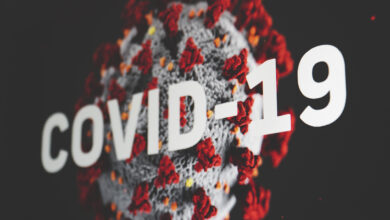
SYDNEY — A venom that can kill you in hours could soon be used to save lives.
Australian scientists have developed a drug candidate from a molecule in the venom of the Fraser Island funnel-web spider to prevent damage caused by heart attacks.
The discovery was made by a team led by Nathan Palpant and Glenn King from the University of Queensland and Peter Macdonald from the southeastern state, Sydney’s Victor Chang Cardiac Research Institute.
Palpant said the drug candidate, a protein called Hi1a, worked by stopping a ‘death signal’ sent from the heart after an attack when blood flow to the organ is reduced.
“The lack of oxygen causes the cell environment to become acidic, which combine to send a message for heart cells to die,” he said.

One of the reasons heart disease continues to be a leading cause of death globally is that no one has been able to develop a drug that stops this death signal.
“The Hi1a protein from spider venom blocks acid-sensing ion channels in the heart, so the death message is blocked, cell death is reduced, and we see improved heart cell survival,” said Palpant.
Macdonald said the discovery could not only help heart attack survivors but increase the number and improve the quality of donor’s hearts, giving hope to those waiting on the transplant list.
“Usually, if the donor’s heart has stopped beating for more than 30 minutes before retrieval, the heart can’t be used,” he said.
“Even if we can buy an extra 10 minutes, that could make the difference between someone having a heart and someone missing out.”
The discovery builds on earlier work by King, who identified a small protein in the venom of the spider that markedly improves recovery from stroke.

The protein has been tested in human heart cells, and the team is aiming for human clinical trials for both stroke and heart disease within two to three years.
There are currently no drugs in clinical use that prevent the damage caused by heart attacks.
The research was published in the scientific journal Circulation on July 16.
Coronary Heart Disease was the single leading cause of death in Australia in 2018, as per the Australian Institute of Health and Welfare reports. It accounted for 17,500 deaths.
“This represents 11 percent of all deaths and 42 percent of cardiovascular deaths,” states the report. 7,300 of Coronary Heart Disease deaths resulted from a heart attack.”
“The Coronary Heart Disease death rate has fallen 82 percent since 1980, or 4.2 percent a year. While Coronary Heart Disease death rates fell substantially in each age group, the rate of decline was more rapid for those aged 75 and over than for younger age groups.
(Edited by Vaibhav Pawar and Saptak Datta)
The post Spider Venom May Save Heart Attack Victims appeared first on Zenger News.






